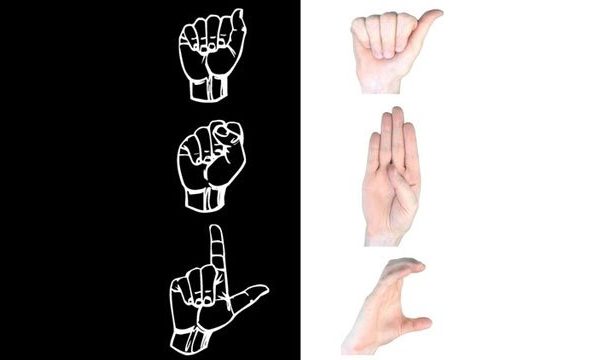Published 5/2024
MP4 | Video: h264, 1920×1080 | Audio: AAC, 44.1 KHz
Language: English | Size: 9.70 GB | Duration: 16h 11m
The Latest Nanny-Level Introductory Course in Mandarin
What you’ll learn
1 Mastering Chinese Pinyin: “Our course covers all Pinyin aspects with 12 lessons, offering extensive pronunciation practice.”
2 Reading and Writing Basic Chinese Characters: “Students explore the origins and structures of characters, learning simple characters and common radicals.”
3 Acquiring Basic Vocabulary and Sentence Structures: “With 26 dialogue lessons, students build over 300 vocab terms and learn to construct simple sentences.”
4 Enhancing Practical Communication Skills: “Course dialogues help students manage everyday conversations and practical communication needs.”
5 Completing Comprehensive Language Application Tests: “Assignments and tests assess skills across listening, speaking, reading, and writing.”
6 Successfully Passing the HSK1 Examination: “Our bilingual HSK1 course prepares students thoroughly for the exam with comprehensive content.”
7 By the way, you can also see some imaginative and interesting cat pictures, because the illustrations for the dialogue lessons are all centered around cats.
Requirements
This is a brand-new, nanny-level HSK1 course taught bilingually in English and Chinese to ensure accessible learning for native English speakers. The course content is thorough, equipping students with all the necessary knowledge and skills to pass the HSK1 exam and showcase excellent language abilities. There are no prerequisites for this course; it is suitable for absolute beginners, students, and adults alike.
Description
The course includes four main components: Pinyin, Chinese characters, dialogues, and exercises, and I may add a dedicated vocabulary section in the future.Part One: Pinyin — This section offers 12 lessons, covering all aspects of Pinyin and providing numerous pronunciation exercises. You’ll master initials, finals, whole syllable recognition, tones, tone changes, the neutral tone, ‘erhua’, and Pinyin rules, laying a solid foundation for Chinese phonetics. In fact, by simply going through these 12 lessons once and focusing on initials, finals, and tones, as well as the final three pronunciation practice sessions, mastering Pinyin will be a breeze.Part Two: Chinese Characters — Comprising four lessons, this section covers the basics of Chinese characters such as strokes, stroke order, radicals, and structure. Completing these lessons will enhance your ability to recognize characters. If you do not need to write characters, just listening for a general understanding is enough. However, if writing is necessary, you should take these lessons seriously and engage in extensive writing practice afterwards.Part Three: Dialogue Texts — Includes 13 dialogues, each divided into two lessons: one focuses on vocabulary and pronunciation, and the other on linguistic points and communication applications. In these 26 dialogue sessions, you’ll accumulate over 300 basic vocabulary words and master more than 100 language points, enabling you to construct simple sentences for everyday scenarios. What’s more, these dialogues form a complete story revolving around Chen Qingcheng, a Chinese girl, and Ralph, an American man, as they meet, chat, call each other, and explore life in China together. These dialogues cover many life scenarios, common basic vocabulary, sentence patterns, and all the content needed for the HSK1 exam. You can think of Chen Qingcheng as your friend, imagine the conversations you would have with her, and what you might experience together in China. These dialogues are more dynamic, interesting, and practical than typical textbook material, yet they maintain the systematic integrity of the course. Interestingly, the illustrations in the textbook feature cats as the main characters, creating imaginative and fun images. Overall, I hope my course is both practical and enjoyable. Let’s immerse ourselves in various Chinese settings as if we were traveling through China. By the time you finish this course, you will have mastered the basics of the Chinese language and easily pass the HSK1 exam.Part Four: Exercises and Tests — We’ll assess your listening, speaking, reading, and writing skills to ensure you can use the language comprehensively.This is a brand-new, nanny-level HSK1 course taught bilingually in English and Chinese, ensuring that if your English is proficient, you will have no barriers to learning.If you enjoy this course, I might expand into HSK2, HSK3, and HSK4, or create other specialized Mandarin courses.Thanks for choosing this course. Let’s stay connected via social media to keep our learning and conversations alive. See you in class!
Overview
Section 1: Chinese Pinyin (12 lessons)
Lecture 1 Lesson 1 : Introduction to Chinese Pinyin
Lecture 2 Lesson 2 : Initials of Chinese Pinyin
Lecture 3 Lesson 3 : Analysis and Practice of Difficult Initials
Lecture 4 Lesson 4 : Finals and Whole syllables
Lecture 5 Lesson 5 : Analysis and Practice of P Difficult Finals
Lecture 6 Lesson 6 : Tones and Special Tone Sandhi
Lecture 7 Lesson 7 : The Neutral Tone
Lecture 8 Lesson 8 : The Retroflex Final(erhua)
Lecture 9 Lesson 9 : Three Rules of Pinyin
Lecture 10 Lesson 10 : Pinyin Pronunciation Practice(1)
Lecture 11 Lesson 11 : Pinyin Pronunciation Practice(2)
Lecture 12 Lesson 12: Pinyin Pronunciation Practice(3)
Section 2: Chinese Characters (4 lessons)
Lecture 13 Lesson 1 : Introduction to Chinese Characters
Lecture 14 Lesson 2 :The Strokes of Chinese Characters
Lecture 15 Lesson 3 :The Stroke Order and Structure of Chinese Characters
Lecture 16 Lesson 4 :The Radicals of Chinese Characters(Part 1)
Section 3: Textbook Dialogues (26 lessons)
Lecture 17 Lesson 01-01 How to Greet People
Lecture 18 Lesson 01-02 How to Greet People
Lecture 19 Lesson 02-01 Can I Add You on WeChat?
Lecture 20 Lesson 02-02 Can I Add You on WeChat?
Lecture 21 Lesson 03-01 Talking About Family
Lecture 22 Lesson 03-02 Talking About Family
Lecture 23 Lesson 04-01 Can You Cook Chinese Food?
Lecture 24 Lesson 04-02 Can You Cook Chinese Food?
Lecture 25 Lesson 05-01 Asking About Feelings
Lecture 26 Lesson 05-02 Asking About Feelings
Lecture 27 Lesson 06-01 Expressing Dates: Year, Month, Day, and Week
Lecture 28 Lesson 06-02 Expressing Dates: Year, Month, Day, and Week
Lecture 29 Lesson 07-01 What Do You Want to Do?
Lecture 30 Lesson 07-02 What Do You Want to Do?
Lecture 31 Lesson 08-01 Apologies and Responses
Lecture 32 Lesson 08-02 Apologies and Responses
Lecture 33 Lesson 09-01 Expressing Time
Lecture 34 Lesson 09-02 Expressing Time
Lecture 35 Lesson 10-01 Making Calls and Appointments
Lecture 36 Lesson 10-02 Making Calls and Appointments
Lecture 37 Lesson 11-01 Ordering Food in a Restaurant
Lecture 38 Lesson 11-02 Ordering Food in a Restaurant
Lecture 39 Lesson 12-01 Shopping: How Much Is This?
Lecture 40 Lesson 12-02 Shopping: How Much Is This?
Lecture 41 Lesson 13-01 How Is the Weather?
Lecture 42 Lesson 13-02 How Is the Weather?
This course is designed for those interested in learning Mandarin Chinese, including absolute beginners and learners at a basic level.
Homepage
https://anonymz.com/?https://www.udemy.com/course/mandarin-chinese-language-hsk1/










